High Potential for Data Usage in Society
The 2020 HEC Data Day once again brought together a wide array of researchers, students and professionals in an expanded format designed to showcase some of the school’s salient research and applications of data science. For the first time, the February 25 event featured four separate sessions, a corporate round-table and two innovative data challenges. Much of what was said has a particular resonance as, with the health pandemic raging, authorities turn to data usage to help track down the virus.
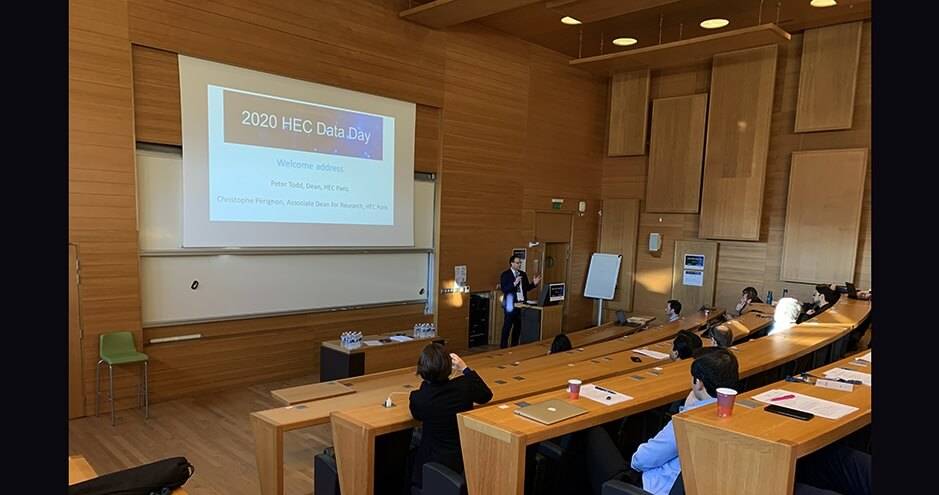
Exactly a decade ago, Canadian academic David Eaves broached the idea of an international open data hackathon designed to build on the growing interest in the field: “Spread the word” and “make a better world” were Eaves’ motto. “Let’s not try to boil the ocean,” he wrote. “Let’s have a bunch of events where people care enough to organize them, and try to link them together… (to) raise some awareness, build something and have some fun.”
10 years on, and pretty much all these ingredients featured in HEC’s third edition of Data Day. Key issues like privacy, social media and the use of data science for social good were explored by some of the school’s top academics and PhD students. “Data offers us a fabulous variety of topics and once again this corporate event presented a heterogeneous brochette of debates to over 100 attendees,” said the day’s co-organizer Christophe Pérignon.
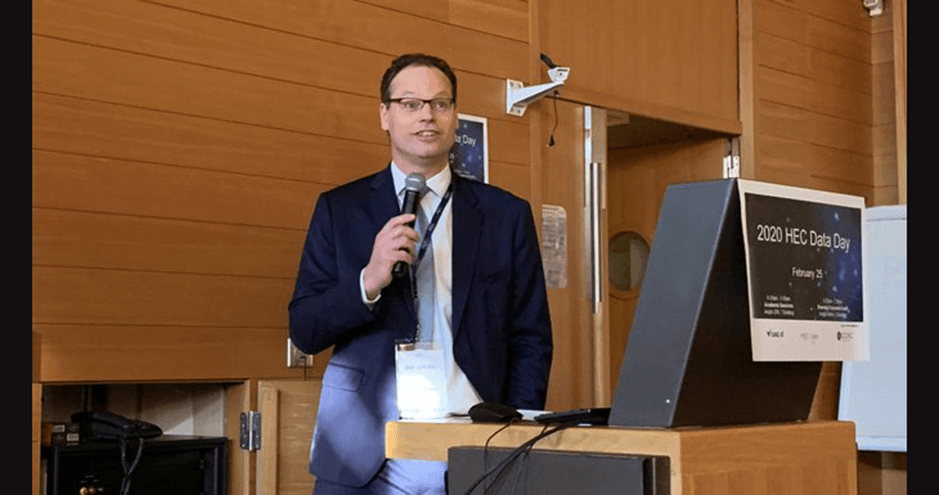
Privacy, Social Media and New Data
The day’s opening session on privacy included an analysis of the GDPR App designed by HEC graduate Aurore Troussel. Her work with Associate Professor David Restrepo seeks to red flag any agreements which do not respect the politics of data confidentiality. What started as a class project became a promising app in the space of six months. A similar ascension was illustrated at the end of the session with the presentation of the startup Justice.cool. This HEC-born platform seeks to accelerate or avoid legal process through reconciliation.
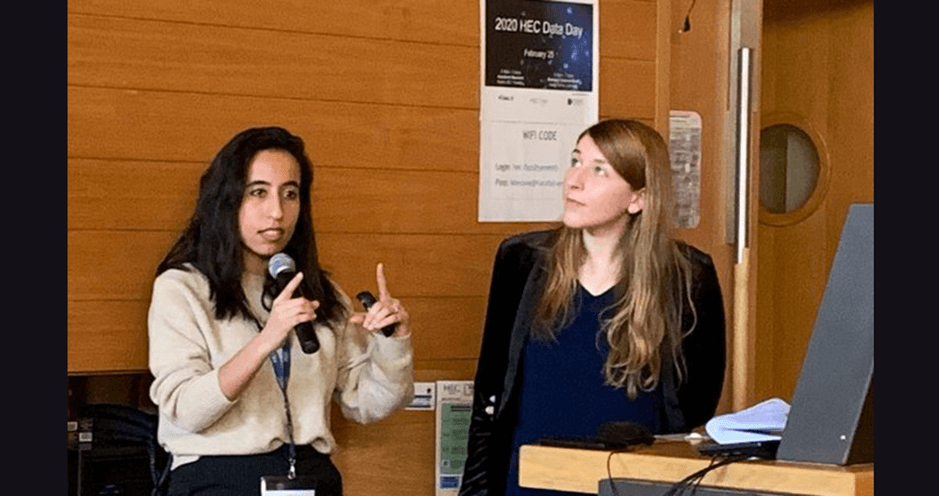
Session 2 on social media and new data included a hard-hitting presentation by doctoral student Reza Alibakhshi on the influence of image and text sentiments on social media engagement. The researcher, supervised by Professor Shirish Srivastava, questioned dissonance between a message and the face behind it, asking if its differences actually generated engagement. Marketing academic Cathy Yang explored scalable content evaluation, focusing on human effort and machine learning. The session ended with one of the day’s two data challenges, sponsored by Natixis and co-monitored by HEC co-Chairs Jean-Edouard Colliard and Vincent Fraitot.
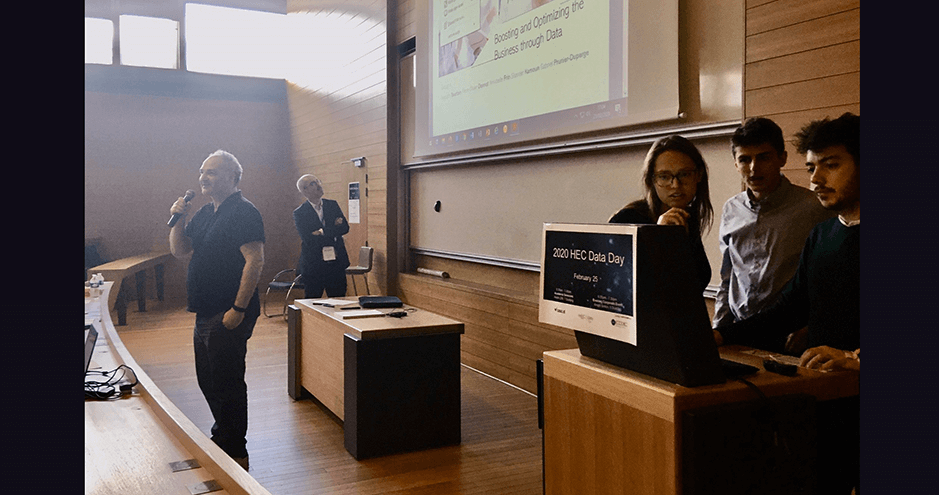
From Theory to On-the-ground Application
The two afternoon sessions discussed the tools and methods at the researchers’ disposal and the positive impact data science has on society. The former included Gilles Stoltz’ work on managing electricity consumption and price fluctuations that provide dynamic tariff incentives. The latter featured a study by HEC academic Jean-Noël Barrot on recent advances in the French Parliament on questions of data and public policy. The professor of Finance and Economics has actively been working on law proposals which he hopes will simplify the simulation of the cost a tax reform. Professor Rodolphe Durand, meanwhile, exposed his vision of organizational responses to environmental, social and governance issues.
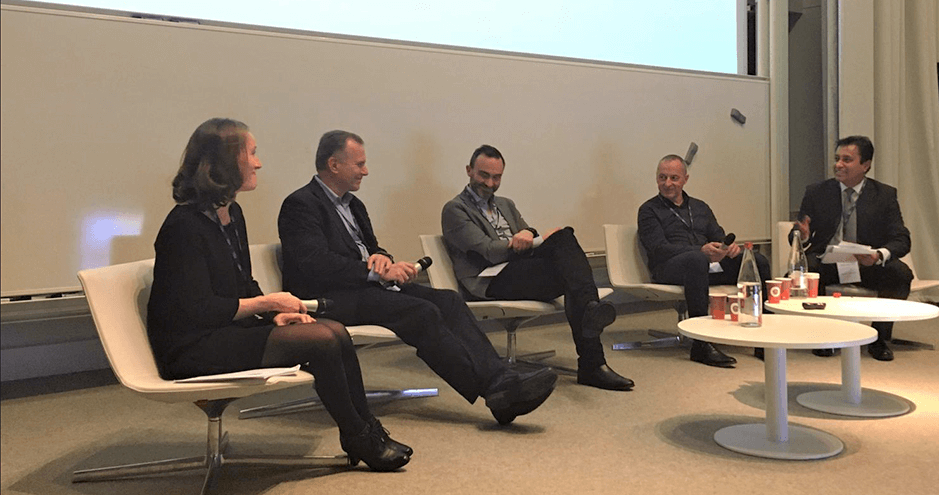
Moderated by Professor Shirish Srivastava, the evening corporate round-table centered on value creation using new data and tools. Four professionals from partner companies (Allen & Overy, Atos, GS1 and Michelin) exposed how their firms have been exploiting data science in corporate circles. “They were all of the highest standards, but one in particular captured the students’ imagination,” commented Christophe Pérignon. “Eric Chaniot of Michelin showed how the Internet of Things has helped his company exploit AI for its tractor wheels: new designs can alter the tires’ bar pressure according to the surface the tractor is rolling on. So, it increases bars for road usage to save fuel consumption and decreases them when rolling over fields in order not to squash the buds. You could dub this new generation intelligent tires!”
? Data and technology and the broader impact on society. Watch the interviews with #HECprof Kristine de Valck and @rudyOrg, and Olivier Breillacq @BREILLACQ1, Director WeData. cc @HECKnowledge @christoperignon #HECdataDay20 pic.twitter.com/Bz8sGZIXQf
— HEC Paris Business School (@HECParis) February 28, 2020
Data Day is set to further expand in the coming years thus answering growing student demand for its development. The popularity of the students’ Data Minds Club and the increased focus on data in teaching reflect the growth of data usage by companies. “The excellent data challenges this year are a boon for its sponsors Natixis and Antin,” said Pérignon. “Both companies are using data science to anticipate client needs and entice them back with better services. These are but a couple examples of the potential that data crunching and AI holds for the future.”